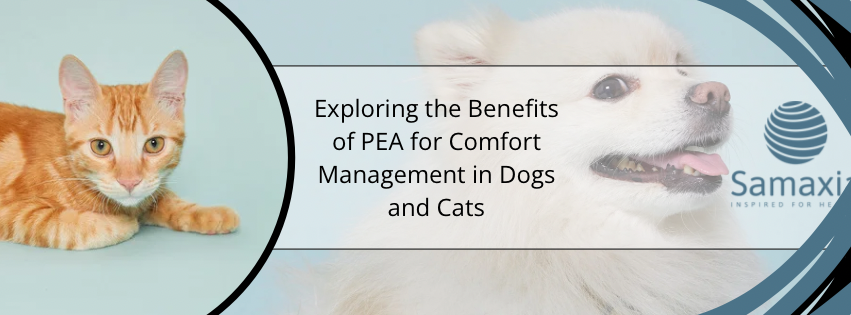Exploring the Benefits of PEA for Comfort Management in Dogs and Cats
As pet owners and veterinary professionals, we are constantly seeking ways to maintain and enhance the well-being of our furry friends. Palmitoylethanolamide (PEA), a naturally occurring fatty acid amide, has been gaining attention for its role in supporting the comfort levels of animals. This blog explores the potential benefits of PEA, focusing on its application in the daily routine of dogs and cats.
What is Palmitoylethanolamide (PEA)?
PEA is a substance found naturally in the body and is present in various food sources. It is known for its presence in animals and humans alike, where it is involved in maintaining balance within the body's comfort management systems. Importantly, PEA does not fall under the category of pharmaceuticals and is not marketed with the intention of diagnosing, curing, or treating diseases.
The Role of PEA in Animal Care
In the context of veterinary care, maintaining optimal comfort is a priority, especially for pets experiencing fluctuations in their well-being due to various factors. PEA has been studied for its cellular activity, and while definitive outcomes are continuously being researched, anecdotal evidence suggests that animals may benefit from its incorporation into their daily care.
Integrating PEA into Veterinary Practices
Veterinary professionals may consider the inclusion of PEA as part of a broader approach to managing the comfort of dogs and cats. It is crucial to approach such strategies with a well-rounded view, focusing on maintaining the overall health and well-being of pets.
Holistic Care: PEA can be part of a holistic approach that includes nutrition, regular physical activity, and environmental enrichment.
Complementary Approach: While not a replacement for any prescribed regimen, PEA may complement existing strategies aimed at supporting pet comfort.
Best Practices for Discussing PEA
When discussing PEA with pet owners, it's essential to focus on education and informed choices. It is important to avoid implying medical benefits and instead focus on the role of PEA in maintaining general well-being.
Informative Sessions: Providing pet owners with information sessions on various elements of pet care, including the role of natural supplements, can empower them to make informed decisions.
Professional Guidance: Always recommend that pet owners consult with a veterinary professional before integrating new elements into their pet's care routine.
Conclusion
While the exploration of PEA in the veterinary field is ongoing, its role in supporting the comfort and well-being of pets holds promise. It is an exciting time for veterinary professionals and pet owners alike to engage with new developments in animal care. By staying informed we can continue to provide the best possible outcomes for our pets.
For more insights and updates on animal care, stay tuned to our blog.

